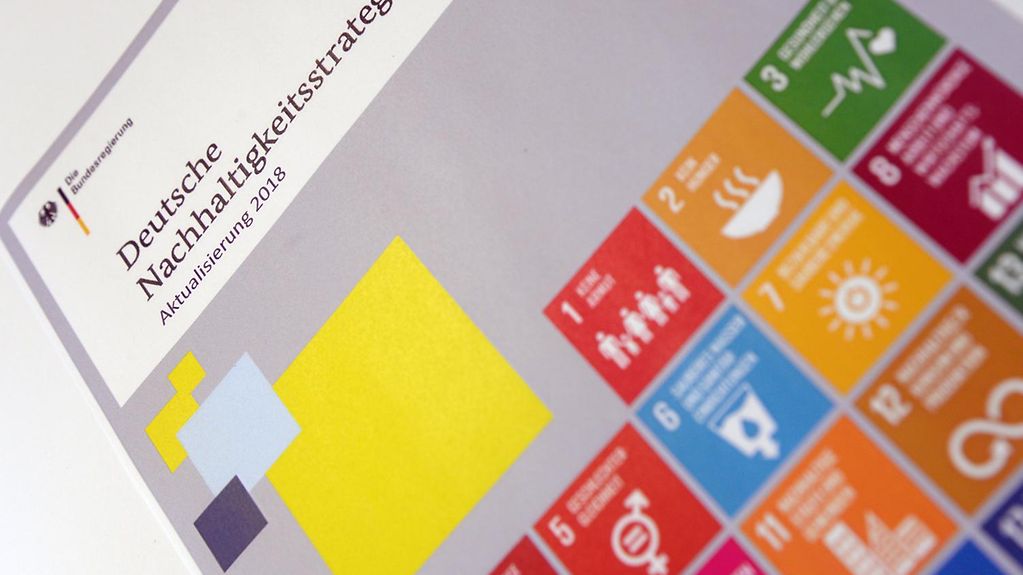Sustainability
To ensure that people around the globe have enough to eat, the German government wants to do more to support good governance. It aims to expand organic farming, with 20% of farmland to be farmed organically by 2030. Meanwhile, private and public spending on research and development is to rise to a minimum of 3.5% of gross domestic product (GDP) by 2025. These and more points were adopted by the Cabinet as part of the updated Sustainable Development Strategy.
3 min reading time

The concept of sustainability has become more important in all policy fields
Photo: Bundesregierung/Stutterheim
Sustainable public procurement is another area that is to see changes under the updated Sustainable Development Strategy. Every year, contracts worth hundreds of billions of euros are placed. Two new indicators are to ensure that sustainability is a criterion that is taken into account in public procurement. The percentage of total paper consumption of the federal administration in the narrow sense accounted for by paper bearing the "blue angel" quality seal is to rise to 95% by 2020, and CO2 emissions generated by customary vehicles belonging to the public sector are to be reduced significantly.
This update of the Sustainable Development Strategy demonstrates the importance accorded by the German government to continuing to raise awareness of the imperatives of sustainability across all policy fields. The update will supplement the version of the strategy published in January 2017.
There is still a lot of work ahead
A peer review conducted by international experts in the field of sustainability policy in June 2018 praised Germany's existing Sustainable Development Strategy, while pointing out that further changes are still needed. Experience to date in implementing the 2030 Agenda for Sustainable Development at both national and global level shows that there is still scope to become more sustainable - and that there is still a lot of work ahead. In Germany too, we are still far from having a sustainable economy and a sustainable lifestyle in many respects.
In the Coalition Agreement signed in March 2018, the governing parties CDU, CSU and SPD affirmed their commitment to ambitiously implementing the UN's 2030 Agenda and its 17 sustainable development goals, as well as promoting sustainable development as a yardstick against which government actions will be measured. The strategy is to be ambitiously developed on an ongoing basis.
Principles for sustainable policy
The strategy also lays out newly worded principles for sustainable development, which replace the management regulations formerly in place. The six principles can be summed up as follows:
- Adopt sustainable development as a guiding principle at all times and in all areas
- Accept global responsibility
- Strengthen the natural resource base on which life depends
- Strengthen sustainable economic activity
- Preserve and enhance social cohesion in an open society
- Use education, science and research, and innovation as drivers of sustainable development.
Broad-based participation on update
All federal ministries were involved in elaborating the updated strategy within the framework of the State Secretaries' Committee for Sustainable Development, chaired by the Head of the Federal Chancellery. Comments submitted by members of the general public during an online consultation process organised by the Press and Information Office of the Federal Government in June 2018 were also incorporated, as were comments emerging from the annual Sustainability Forum held in June 2018. Every year the Federal Chancellery hosts this forum, which is attended by major stakeholders in the sustainability sector.
The German government will continue to enthusiastically drive forward the strategy, and the implementation thereof, and will ensure that all relevant stakeholders within society can participate. The regular complete revision of the strategy is planned for 2020.